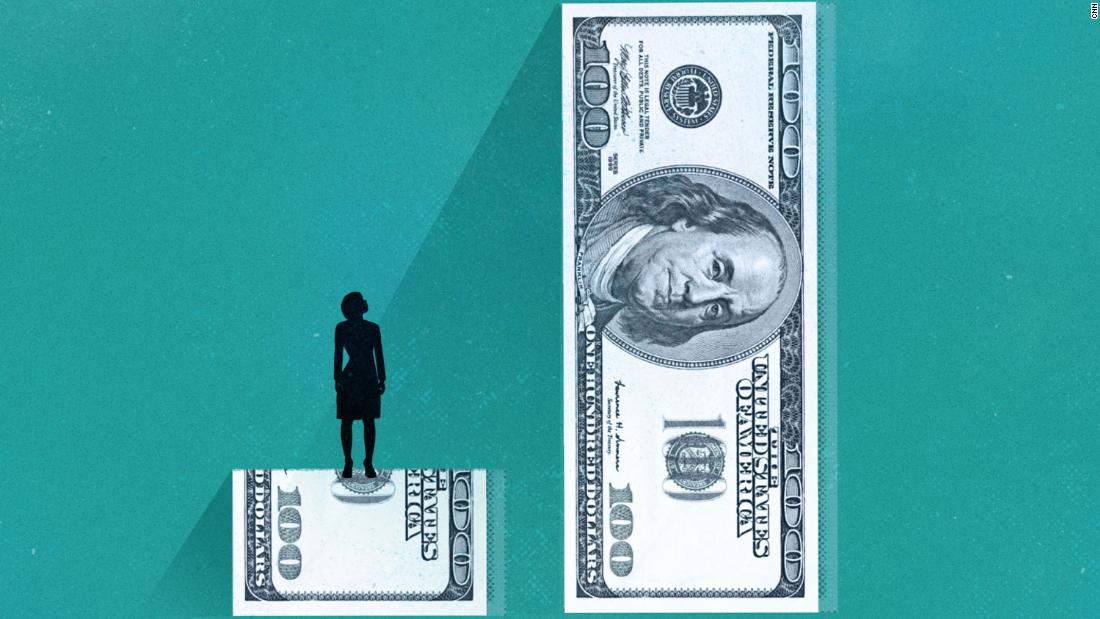
Widely followed measures of wage growth, such as median real weekly earnings, have been basically flat over the past year. That's puzzled economists, who figure that workers should get paid more as the unemployment rate sinks to historic lows, and prompted many theories about what could be depressing paychecks.
But the White House's Council of Economic Advisers argued in a report Wednesday that there's no puzzle — traditional metrics just aren't fully reflecting how much Americans are being compensated by their employers.
The report finds that wages have actually grown by 1.4% over the past year, by incorporating data on benefits, taxes, a different measure of inflation, and how earnings differ across age brackets. For the average American family, that comes out to roughly an additional $1,000 per year.
"Much of the commentary about wage growth that we see is influenced by confusion we find about proper measurement," said the Council of Economic Advisers' Chairman Kevin Hassett, in a briefing with reporters. "These compensation gains represent substantially more money for American workers."
Much of the White House's analysis is built on other scholarly work, and has been noted in other economic commentary.
For example, the council's report emphasizes the importance of factoring in the departure of older people from the labor force, which drags down the average since people tend to retire when they're earning near their peak salaries.
The Federal Reserve Board of Atlanta's wage growth tracker adjusts for age as well. Although it shows higher average wage growth than the Bureau of Labor Statistics' typical measures, that rate of growth has still been on a downward trend since October 2016.
The council also notes a decade-long trend toward non-wage forms of payment — such as paid leave, health care, retirement contributions and other benefits — that is reflected in the Bureau of Labor Statistics' Employer Costs for Employee Compensation metric, which is released monthly.
It's not as clear whether gaining more in benefits at the expense of a fatter paycheck represents a win for workers. Hassett said that employees value benefits "just as much as cash," but surveys by groups such as the Society for Human Resource Management have only found that most workers value their benefits, without asking whether they would trade them for more pay.
Another adjustment: The Council of Economic Advisers uses after-tax compensation, rather than pre-tax, to reflect what workers actually get to take home. Jason Furman, who served as the council's chair under President Obama, took issue with that idea on Twitter. "Wages are meant to be a measure of labor market outcomes not an overall indicator of well-being," he wrote.
Finally, the report proposes changing the measure of inflation used to figure out how much purchasing power workers have as prices increase.
Despite all of these adjustments, going from flat wage growth to 1.4% over the past year isn't a huge difference — especially in contrast to how well employers are doing. Last week, the Commerce Department reported that after-tax corporate profits increased by 16.1% in the second quarter of 2018 over the quarter a year ago, due in large part to the large reduction in the corporate tax rate that went into effect this year.
Hassett said he expects wage growth to pick up in the second half of the year as corporations start using all the equipment they've bought with their extra cash, which he says should make workers more productive and thus justify higher pay.
Many economists, however, say there are more direct ways to funnel more money to workers than giving it to their employers through lower taxes.
"We changed the incentives on the margin, but also gave a big gift to company owners that didn't require any change in behavior," says Aaron Sojourner, a labor economist at the University of Minnesota. "And maybe it'll pay off for workers down the road. But in the past, similar policy changes have had less than promised results."
Bagikan Berita Ini














0 Response to "Wages are growing, White House insists"
Post a Comment